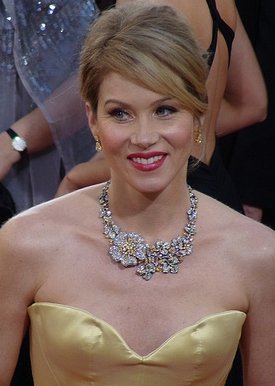
Actress and cancer survivor Christina Applegate, of Married...with Children and Anchorman fame, was well known in the late 1980s and the '90s. She has the movies Vibrations, View from the Top, Vacation, and Bad Moms under her belt, and a slew of short-lived television shows, such as Samantha Who?
Though she will always be remembered as Kelly Bundy, the bumbling daughter of a blue-collar hero of the infamous Fox show, her big film splash was the 1991 cult classic comedy Don't Tell Mom the Babysitter's Dead.
In the movie, she plays the average teenage girl Sue Ellen Crandell, who must fend for her and her siblings after her mother went on a long-overdue vacation and the sudden death of her strict babysitter.
This comedy unravels as Sue Ellen, a stereotypical '80s high school graduate, compromises with her adult brother Kenny and gets a job. After dealing with an unappreciative, minimum-wage job at a fast food joint, she quits for greener pastures.
Given she has no employment experience outside a day's work at a clown-themed fast food establishment, she doctors a resume in an industry she has knowledge and interest in: fashion.
Overshooting, applying for a job as a receptionist, she lands a job as an executive assistant, earning the ire of a co-worker. While libertarians are opposed to dishonesty, this could be argued as "desperate times, desperate measures," and the employer did not do a background check or call any references.
Hiring Sue Ellen directly, with no actual background on the business side of her hobby, she learns on the job. She learns how to take calls, make appointments, organize reports, manage computer skills, the concept of petty cash, and, speaking of which, the value of money.
The executive assistant delegates heavy work loads, acknowledges debt and the legality that comes with it, and stands up for herself against the strong come-ons of a chauvinist man hellbent on exploiting women in the workplace.
On top of the employment duties, she learns how to be a responsible family woman, as she focuses more attention on her siblings, reasoning with her stoner brother, and feeding them. Contrasting the start of the film where she showed resentment and annoyance of her siblings.
When faced with a political issue where she is on the teenage side of - manufacturing school uniforms for teenage students - she sucks it up and helps the company. Using her own creative input, she comes up with a fashion line to save the company and offers up her home to host an event. With this, comes heavy-duty cleaning of the household and spacious yard, an '80s teenager's nightmare.
Her employer utilized market-based management and let the executive assistant run with it. Whether this becomes a success or not would be a spoiler. But the point is, much of this movie is a liberal dystopia for the free market economics of workers, a conservative tragedy for the libertine social norms of teenagers, and a libertarian dramedy where self-interest and voluntary association rises to the occasion.
All the while, Applegate's character balances a love life with a blue-collar worker who gives her a sense of normalcy.
Does the babysitter come back to life? Does the mother spank Sue Ellen on her return? Watch the libertarian classic and find out.